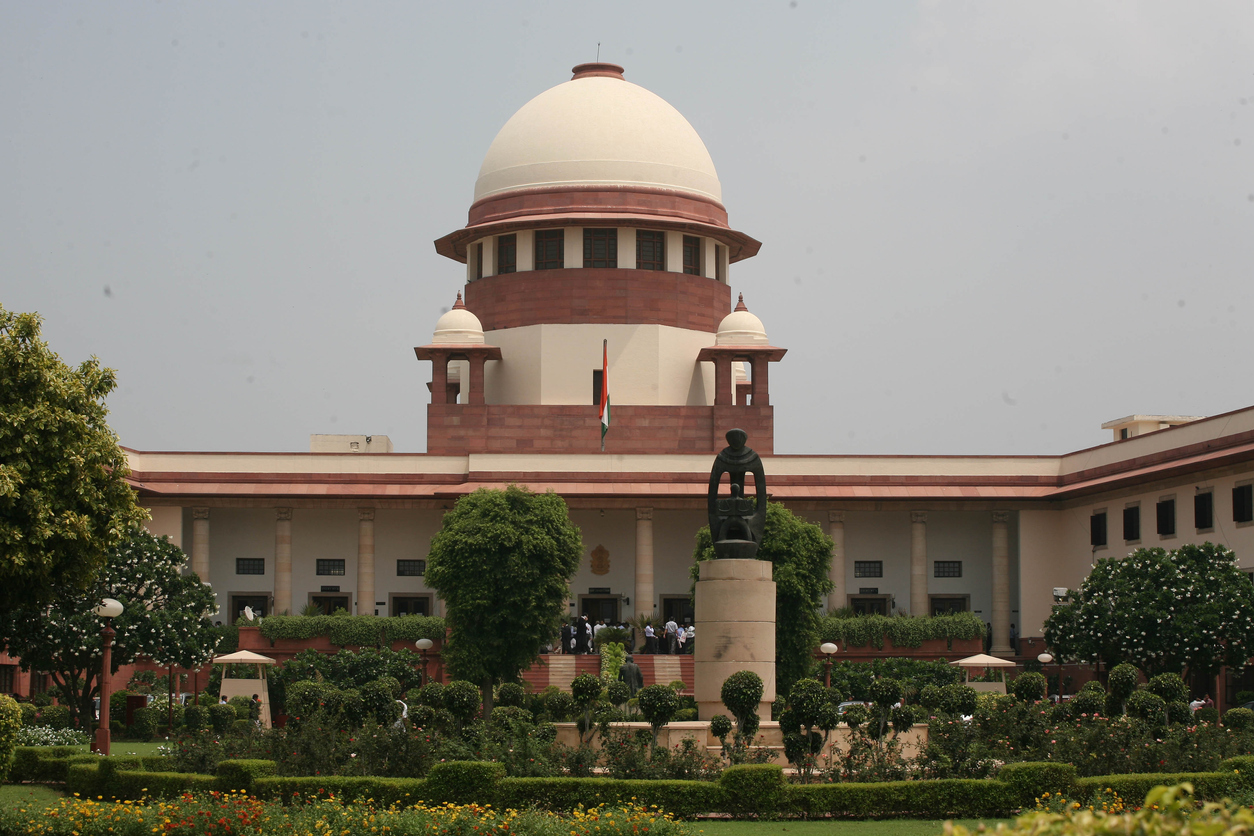
SC to examine abrogation of Art 370; refers matter to Constitution bench

The Supreme Court on Wednesday (August 28) decided to examine the legal challenge against the Centre’s decision to abrogate Article 370, which gave special status to Jammu and Kashmir and referred the matter to a five-judge Constitution bench.
The apex court issued notices to the Centre and Jammu and Kashmir administration on a batch of pleas challenging the Presidential order by which Article 370 was abrogated.
A bench headed by Chief Justice Ranjan Gogoi was not in agreement with the Centre that there was no need for issuance of notice in the matter as the Attorney General K K Venugopal and the Solicitor General were marking their presence in the court.
“We will refer the matter to a five-judge Constitution bench”, the bench also comprising justices SA Bobde and SA Nazeer said while not accepting the arguments that the issuance of notice will have a “cross-border repercussion”.
The Attorney General said that whatever is being said by this court is sent before the United Nations.
As the counsel appearing for both sides were involved in arguments and counter-arguments, the bench said, “We know what to do, we have passed the order, we are not going to change.”
It also said all the matters would be listed for hearing in the first week of October.
The Supreme Court has also allowed CPI(M) general secretary Sitaram Yechury to visit Jammu and Kashmir to meet his party colleague and former MLA Mohammed Yusuf Tarigami in the state.
However, it has directed Yechury to only meet Tarigami and not use the visit for any political purpose. The bench said, if Yechury indulges in any political activities, authorities are free to report them to the apex court.
Also, the apex court allowed a law student from Jamia Millia Islamia University here to visit his parents in Anantnag district of Jammu and Kashmir and asked the police to provide him security.
The top court asked the student Mohd Aleem Syed to file an affidavit after visiting his parents.
The bench told senior advocate Sanjay Hegde that if the Jamia student wants to travel to Anantnag on Thursday then the court order will be made available to him in one hour.
Syed, in his plea filed through advocate Mrigank Prabhakar, said he is a permanent resident of Anantnag and since August 4-5, he has not received any information about his parents. Syed said that he suspects that his parents have been detained in Kashmir as he was not able to contact them by any means or manner.
He had submitted in his plea that there is a complete shutdown of Internet and phone services since the issuance of Presidential order and passage of Jammu and Kashmir (reorganization) bill, 2019. He contended that this information blackout and restrictions on movement of people is violative of fundamental rights granted under the Constitution.
The first petition challenging the presidential order scrapping Article 370 was filed by advocate M L Sharma, who was later joined by another lawyer from Jammu and Kashmir, Shakir Shabir.
National Conference (NC), a prominent political party from Jammu and Kashmir, filed a petition on August 10, contending that the changes brought in the status of the state had taken away the rights of its citizens without their mandate.
Arguing that the legislation approved by Parliament and the orders issued by the President subsequently were “Unconstitutional”, the petition prayed for those to be declared “Void and inoperative.”
The petition was filed by Mohammad AKbar Lone and Justice (retd) Hasnain Masoodi, both Lok Sabha members of the NC.
Lone is a former speaker of the Jammu and Kashmir Assembly and Masoodi is a retired judge of the Jammu and Kashmir High Court, who ruled in 2015 that Article 370 was a permanent feature of the Constitution.
There are other petitions challenging the Centre’s decision to abrogate Article 370, including a plea filed by a group of former defence officers and bureaucrats, who have sought directions declaring the presidential orders of August 5 as “Unconstitutional, void and inoperative.”
The plea was filed by professor Radha Kumar, a former member of the Home Ministry’s Group of Interlocutors for Jammu and Kashmir (2010-11), former IAS officer of Jammu and Kashmir cadre Hindal Haidar Tyabji, Air Vice Marshal (retd) Kapil Kak, Major General (retd) Ashok Kumar Mehta, former Punjab-cadre IAS officer Amitabha Pande and former Kerala-cadre IAS officer Gopal Pillai, who retired as the Union home secretary in 2011.
A petition has also been filed by bureaucrat-turned-politician Shah Faesal, along with his party colleague and former Jawaharlal Nehru University Students’ Union (JNUSU) leader Shehla Rashid.
There are other petitions challenging the Centre’s decision on Article 370.


